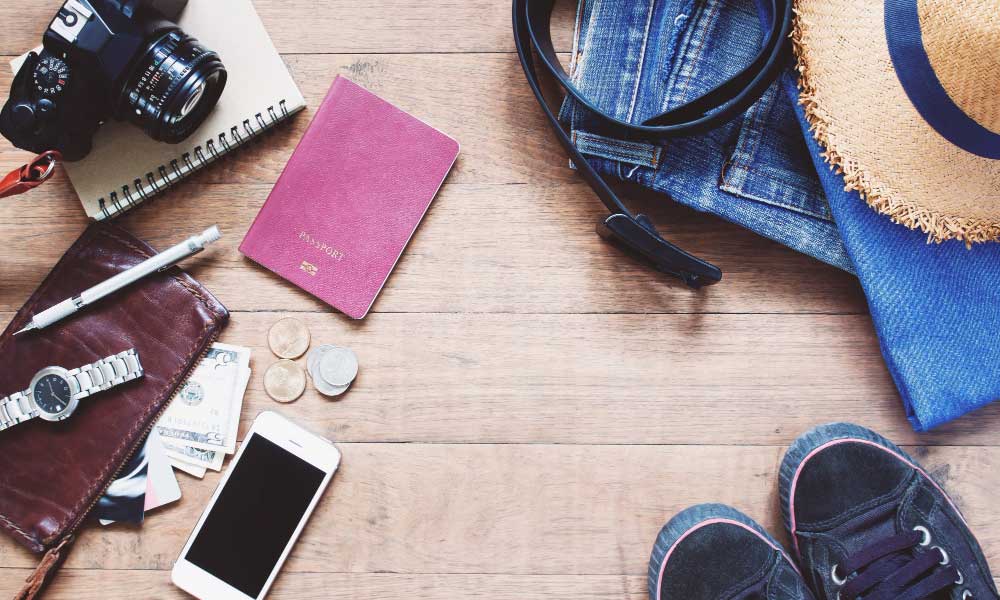Travelling isn’t just about grand vacations or long road trips; it can be a daily activity that enriches life in small, meaningful ways. From short city excursions to weekend adventures, travelling on a day-to-day basis allows us to experience new places, cultures, and people. This constant exploration helps reduce stress, improves mental well-being, and gives us a fresh perspective on our surroundings. Let’s explore how incorporating travel into everyday life can offer both short-term enjoyment and long-term benefits.
1. Expanding Perspective and Cultivating Curiosity
Travelling introduces us to different lifestyles, viewpoints, and cultures, even within our own city or country. Short trips to local landmarks, parks, or cultural hubs can stimulate curiosity, encouraging us to explore places that often go unnoticed in our daily routines. When you approach travelling with a curious mindset, you not only learn about other ways of living but also see your own life from a new perspective.
Taking a fresh look at familiar surroundings can enhance your day-to-day experiences, too. For instance, exploring a local farmer’s market or art gallery could deepen your appreciation for the culture and community around you.
2. Boosting Mental Health and Reducing Stress
Stepping away from daily responsibilities, even briefly, has been shown to improve mental well-being. Small breaks to explore nearby locations provide a sense of adventure and relaxation. Studies indicate that people who travel regularly, even on a small scale, often report feeling happier and less stressed. Travelling offers a change in scenery, and this shift can have a calming effect on the mind, helping you return to daily tasks with renewed energy and focus.
Moreover, travelling with friends or family helps build connections and memories, offering moments of joy that can help improve your overall mental health.
3. Developing Problem-Solving Skills and Adaptability
While travelling, unexpected situations can arise, such as missing a train or encountering a closed museum. Learning to adapt to these small challenges develops problem-solving skills that translate to daily life. Becoming more adaptable and resourceful through travel experiences can increase resilience, a valuable skill in both personal and professional settings.
Travelling also encourages spontaneity. Small, spontaneous trips can be refreshing breaks from rigid schedules, providing a sense of freedom and encouraging you to be open to change.
4. Enriching Relationships and Building Social Skills
Travelling frequently, even within your own town, can help you meet new people and engage in different social settings. Visiting new cafes, attending local events, or taking group tours are excellent ways to build communication skills and expand your social network. Whether you’re travelling with family, friends, or even solo, these experiences create lasting memories and strengthen bonds with those around you.
Travel experiences also offer meaningful topics of conversation, which can enhance social interactions back home. Sharing travel stories with others can deepen connections and allow you to inspire those around you to explore as well.
5. Boosting Creativity and Inspiration
Exploring new places and observing different cultural expressions—like art, food, and architecture—can be incredibly inspiring. Travelling encourages creativity by exposing you to new sights, sounds, and ideas. Even short trips to nearby nature spots, museums, or historic sites can be refreshing and fuel creative thinking. Many artists, writers, and innovators credit travel as a major source of inspiration in their work.
If you’re feeling uninspired or stuck in a routine, taking a short journey to a nearby location might provide the creative boost you need to spark new ideas.
6. Making Travel a Daily Habit
Incorporating small doses of travel into your daily life doesn’t have to be time-consuming or expensive. Try setting aside weekends to explore new parts of your town, or occasionally take a different route home to discover unfamiliar sights. Keep an open mind about what qualifies as “travel.” Sometimes, a simple afternoon at a botanical garden or a nearby town can provide the same sense of wonder as a faraway vacation.
Consider creating a list of local spots you’d like to explore, and make it a goal to visit one each week or month. This approach makes travel an enjoyable habit that can easily fit into your lifestyle.
In Conclusion
Travelling, even on a small scale, has the power to enrich daily life by expanding perspectives, reducing stress, and encouraging adaptability. By treating travel as a regular part of life rather than an occasional luxury, you can reap these benefits continuously. Whether it’s a visit to a new café or a hike through a nearby nature trail, travelling regularly adds a sense of adventure and purpose to everyday life.


